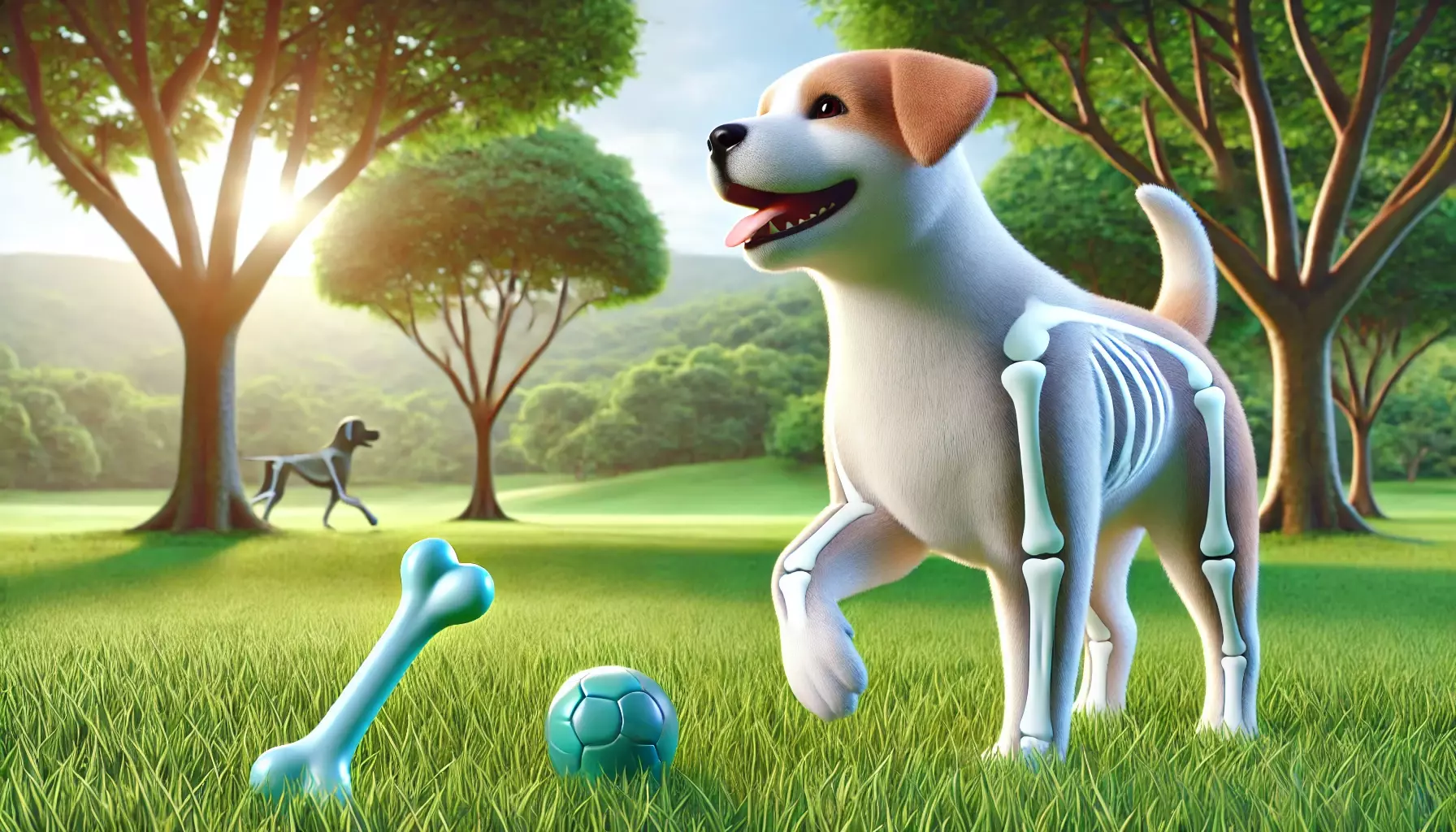Arthritis is a condition that affects many dogs, especially older ones, significantly impacting their quality of life. It is an inflammation of the joints that causes pain, stiffness, and difficulty in movement, as discussed in our article on its causes, symptoms, and how to recognize it. While arthritis is often associated with aging, there are ways to prevent or at least slow its progression.
In this guide, we’ll explore the best strategies to prevent arthritis in dogs, covering risk factors, tips on diet and exercise, and the importance of regular veterinary check-ups.
Risk Factors for Arthritis in Dogs
One of the main risk factors is genetic predisposition. Some breeds, such as Labrador Retrievers, German Shepherds, and Golden Retrievers, are more susceptible to joint problems like hip or elbow dysplasia, which can develop into arthritis over time. While genetics cannot be altered, preventive measures can be taken to protect their joints.
Obesity is another factor that increases the risk of arthritis. Excess weight places undue pressure on the joints, accelerating their wear and tear. For overweight dogs, every movement requires more effort, leading to greater joint strain. Maintaining an ideal weight significantly reduces the likelihood of joint issues and promotes overall well-being.
Aging is perhaps the most common factor. Over the years, joint cartilage naturally wears down, making dogs more vulnerable to arthritis. Although age cannot be avoided, preventive measures like a balanced diet and moderate physical activity can slow the deterioration process.

Nutrition and Supplements to Prevent Arthritis in Dogs
Proper nutrition is crucial for preventing arthritis in dogs, especially for maintaining healthy joints and controlling weight. The food you choose for your furry friend can make a big difference. There are specialized kibbles designed for dogs prone to joint issues or already suffering from arthritis. These often contain functional ingredients like omega-3s, known for their anti-inflammatory properties, and glucosamine, which helps keep cartilage healthy.
In Bau’s catalog, you can find kibbles tailored for bone health, such as those with salmon, trout, sweet potatoes, and asparagus, or those with tuna, sweet potatoes, and broccoli.
Beyond specialized kibbles, joint supplements play a crucial role in arthritis prevention. Supplements containing glucosamine and chondroitin, such as Bau's Mobility & Joints, are commonly used to support joint health, especially in older dogs or breeds predisposed to arthritis. These supplements help maintain cartilage elasticity and reduce inflammation risk.
For puppies, specific products can be introduced early to support proper bone growth and development.
Another essential aspect is vitamin intake, which strengthens bones and joints. For example, vitamin D helps dogs absorb calcium, enhancing skeletal health, while vitamin C acts as an antioxidant, aiding tissue repair.
Physical Activity as a Preventive Tool
Regular physical activity is key to maintaining healthy joints in dogs and preventing arthritis. Movement helps keep joints flexible, strengthens the supporting muscles, and improves circulation, enhancing joint lubrication. However, it’s important to adapt exercise types to your dog's age, size, and physical condition to avoid excessive joint strain.
For younger, more active dogs, regular exercise such as long walks, ball games, or even swimming is excellent for keeping joints flexible. Swimming, in particular, is a low-impact activity that works the entire body without putting too much pressure on the joints. For older dogs or those genetically predisposed to arthritis, low-impact exercises like frequent short walks or light swimming are advisable.
Even for dogs showing signs of stiffness or joint pain, moderate physical activity is crucial to prevent further decline.
Natural Remedies and Alternative Techniques for Joint Health
In addition to exercise and proper nutrition, several natural remedies and alternative techniques can help prevent or alleviate arthritis symptoms in dogs. One common remedy is targeted massages, which improve circulation in the joints and relax surrounding muscles. Massages also help reduce pain and improve mobility, making daily activities more comfortable for your dog.
Physiotherapy is another highly effective option for dogs with joint problems or at risk of developing them. Physiotherapy sessions usually include specific exercises to improve mobility, strengthen muscles, and promote proper posture. Veterinarians specializing in physiotherapy often use techniques like laser therapy or electrostimulation to reduce inflammation and speed up tissue healing.
The Importance of Regular Veterinary Check-Ups
Even if your dog shows no signs of arthritis or joint pain, regular veterinary check-ups can help detect potential issues early when intervention is easier. These visits are also essential for your pet's overall well-being. Early diagnosis can make a significant difference in preventing arthritis progression and maintaining quality of life.
During these visits, your trusted veterinarian will conduct a thorough physical exam, assessing your dog's mobility, any stiffness or swelling in the joints, and overall posture. If necessary, the vet may recommend specific tests like X-rays to evaluate joint health, particularly in older dogs or breeds predisposed to joint problems.
What to Do If Your Dog Shows Signs of Joint Pain
Common symptoms include stiffness, limping, reluctance to move, or avoiding activities your dog usually enjoys, like climbing stairs or playing. With careful observation, you might also notice your dog avoiding weight on a leg or showing discomfort when touched in certain areas. For more details, refer to our article on recognizing arthritis in dogs and helping our furry friends.
If you notice these signs, act promptly. The first step is consulting a veterinarian for an accurate assessment—avoid self-treatment.
The vet may recommend anti-inflammatory or pain-relief medications to alleviate pain and reduce joint inflammation. Additionally, specific supplements like those mentioned earlier, containing glucosamine and chondroitin, may be suggested to support cartilage and prevent further damage.
More: Dog Health



